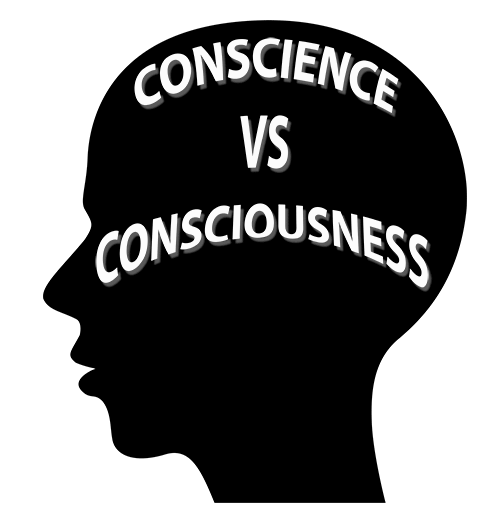Don't Have a Good Conscience, Have Good Consciousness
Do you suppose Hitler had a bad conscience? Or did he have bad consciousness? If you answered no to the former and yes to the latter than you already get the gist of this post.
 I doubt many people, if any, have a bad conscience. Sure, they may have pangs of feelings of guilt but that are able to put those aside to carry on with their daily lives.
I doubt many people, if any, have a bad conscience. Sure, they may have pangs of feelings of guilt but that are able to put those aside to carry on with their daily lives.
I don’t think any conservative, or liberal politician, and for that matter, oil executive, hedge fund manager, etc. wakes up in the morning and thinks to themselves, “How can I make this world worse off today than it was yesterday?” They all think they are doing the right thing according to their obligations to their constituents, shareholders, companies and their own selves and their families. It would be hard for one to live with oneself otherwise.
But many people have a bad consciousness, that is, a less than optimal awareness of how their choices and actions negatively affect others. That is why things (e.g. environment, economics) seem to be in such a bad state of being with each side accusing the other for not doing the right thing.
A bad conscience is fleeting. You may feel bad for cutting someone of in traffic but it is unlikely to cause your sleepless nights and you are likely to repeat the behavior even though you may again feel bad after executing it.
A false good conscience will also cover up failure to act on good consciousness. Conscience is to consciousness what opinions are to facts.
I see this often in the environmental movement. Given the vast body of evidence that shows that animal agriculture heavily and negatively affects the environment, I still see so-called environmentalists create excuses to continue their exploitation of animals. They use the small number of “research,” that is either irreproducible or carried out by those who have a vested interest in perpetuating animal agriculture to proclaim their conscience is good in not giving up animal products to ensure a habitable future for themselves and those whom they love along with the rest of us.
This is no different than climate change deniers who use the 2-3% of scientists who disagree that climate change is caused by human activity to express their good conscience in not doing anything. People use their consumption of local (for environmental reasons) and “humane” animal products to express their good conscience about exploiting animals. If they did their research and raised their level of consciousness, they would realize that these feel-good labels are neither sustainable, nor are they humane.
In short, a “good” conscience is what we use to suppress good consciousness that is contradictory to how we want things to be. So, don’t worry about having a good conscience. Instead, have a good consciousness; act according to values of compassion and sustainability; and a good conscience will follow.

Add new comment